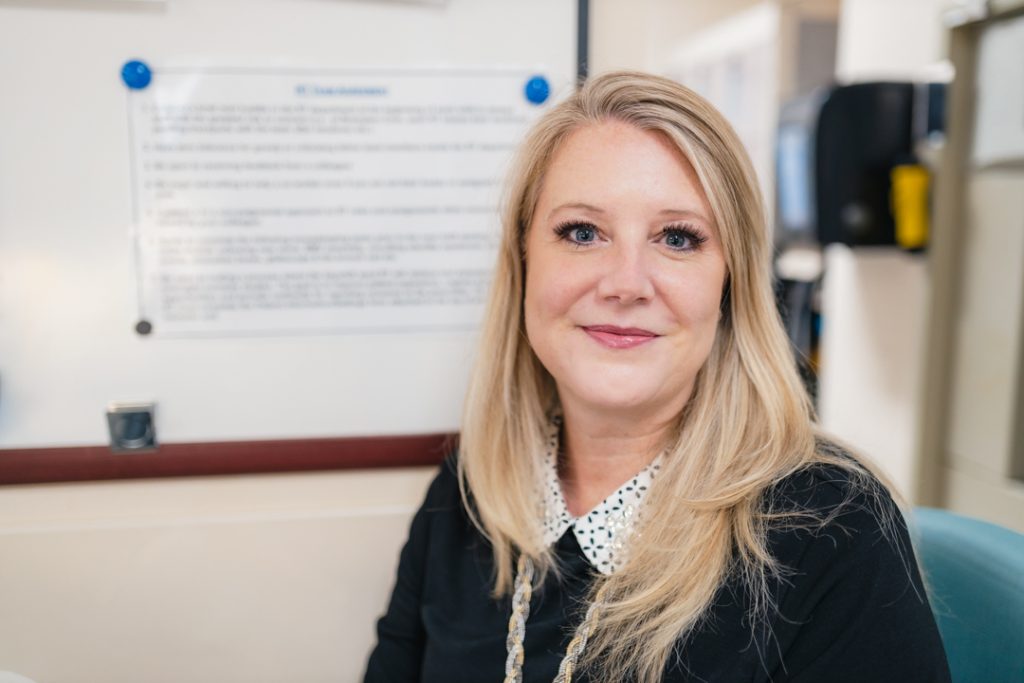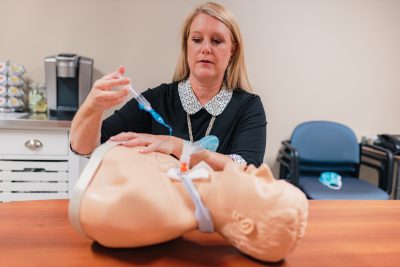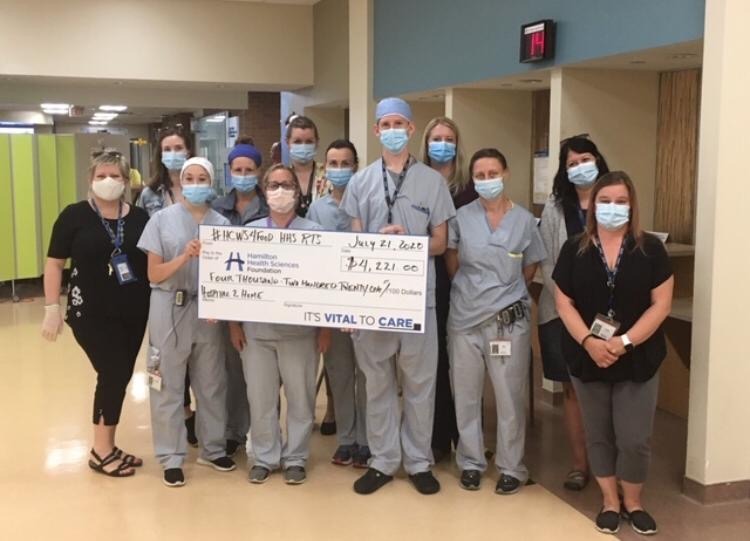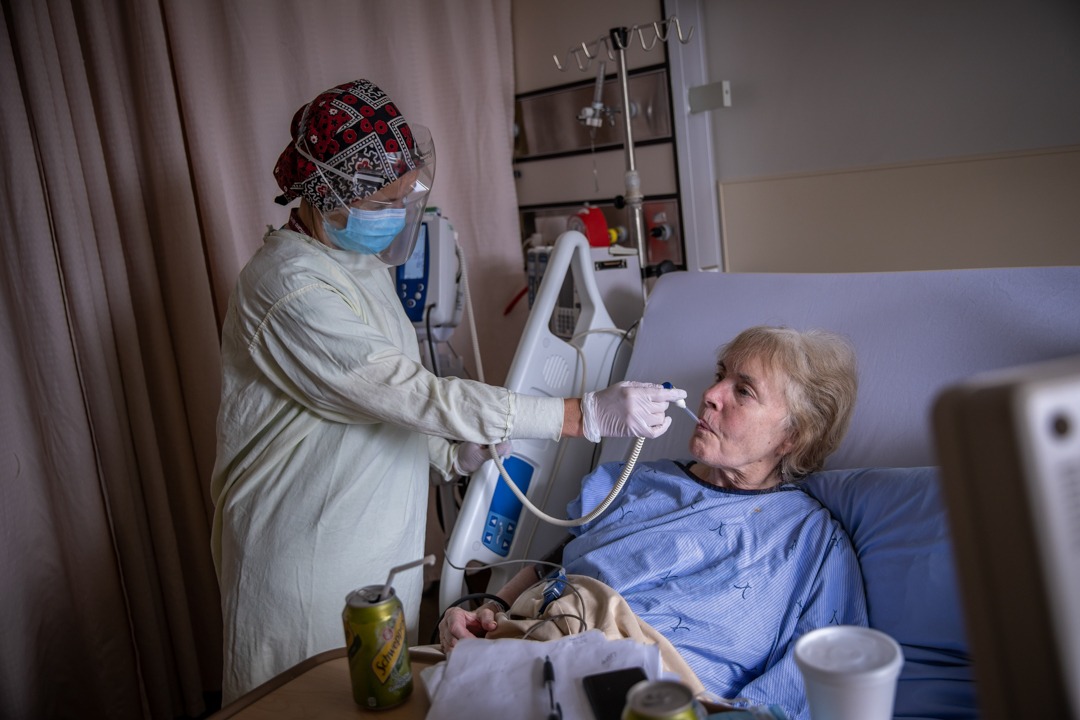
Introducing a Charge Respiratory Therapist
Charge Respiratory Therapist Claudia Poulin regarded her colleagues as healthcare heroes long before COVID-19 launched their profession into the spotlight.
Poulin’s late mother Marilyn Bannister worked as a surgical ward nurse at Brantford General Hospital for more than 40 years, where she regularly sang the praises of respiratory therapists (RTs).
“My mother would often talk about how supported she felt whenever she paged an RT for help,” recalls Poulin, adding that her mother’s high regard for the profession inspired her to become an RT. “My mom was so impressed with their rapid assessment skills and she admired their calmness and competence.”
Poulin is the charge RT at Hamilton Health Sciences’ Hamilton General Hospital, where she manages a team of 50 staff. “RTs have advanced and diverse roles here at HHS,” she says.
Wide-ranging responsibilities
In a critical care setting, RTs manage ventilators and artificial airways for patients who can’t breathe on their own. They’re a vital part of the hospital’s RACE team (Rapid Assessment of Critical Events) and Code Blue team. They also attend all high-risk deliveries, respond to all emergency department critical admissions, and escort ventilated patients for hospital tests and on air ambulance runs.
RTs are consulted for respiratory assessments, recommend therapies, perform breathing tests, support sleep medicine, operate hyperbaric chambers, provide patient education and participate in COVID research.

Charge respiratory therapist Claudia Poulin demonstrates teaching using a mannequin.
“As a charge RT, I’m that point person who is consistently available to balance the responsibilities that pop up on the front lines,” says Poulin. “One minute I’m overseeing a transfer, the next I’m called upon to act as a resource for a staff member who has a challenging assignment.”
Poulin is safety director of HHS’ Hyperbaric Medicine Department. Her responsibilities also include everything from ordering equipment to teaching home ventilation and long-term tracheostomy tube care to families of patients in the Intensive Care Unit.
On the COVID frontlines
“We had to quickly adapt.”
RTs play a vital role vital in supporting COVID patients struggling to breathe. These healthcare professionals are also considered most at risk of contracting COVID because they perform procedures that can send viral particles into the air.
“COVID has changed our practice a lot,” says Poulin. “We had to quickly adapt.”
This included conducting personal risk assessments every time they entered a patient’s room, and spending more time with COVID patients since they were isolated from their families.
Among the greatest challenges posed by COVID has been the shortage of personal protective equipment (PPE) and essential RT supplies. “It’s still a challenge,” says Poulin. “Our team has become extremely adept at extending the use of a N95 mask and finding available substitutions to stock our shelves.”
Her healthcare heroes
Poulin’s mom is at the top of the list of people who have impacted her the most. “My mother taught me to lead with humility, appreciation and kindness, and to always help others be their best.”
Another major influence has been Dr. Clive Davis, a retired HHS respirologist. “He demonstrated patience and equality to all members of the healthcare team. His endless advocacy and drive to promote this positive patient experience was inspiring and infectious.”
Though retired, Dr. Davis continues to work with Poulin as a Hyperbaric Medicine Department physician.
“We’re like family.”
Then there’s her team. “Words can’t express how impressed I am, and how deeply grateful I feel for their dedication and compassion, especially over the past few months. There’s such a strong sense of comradery among our staff, especially since the pandemic. We’re like family.”


